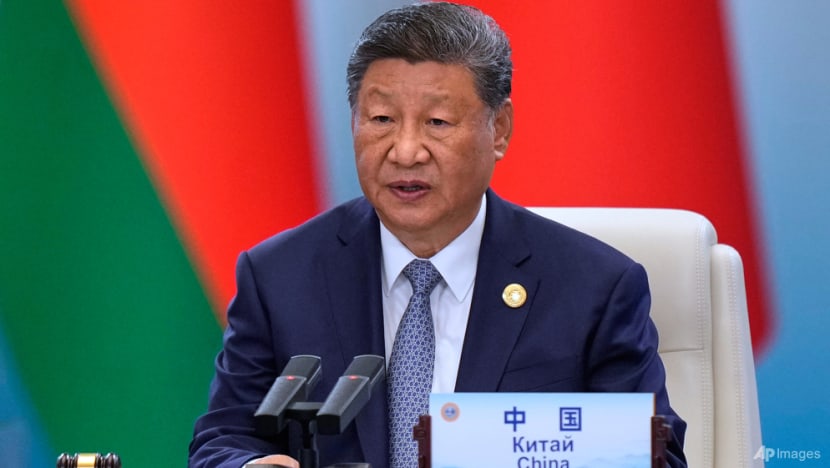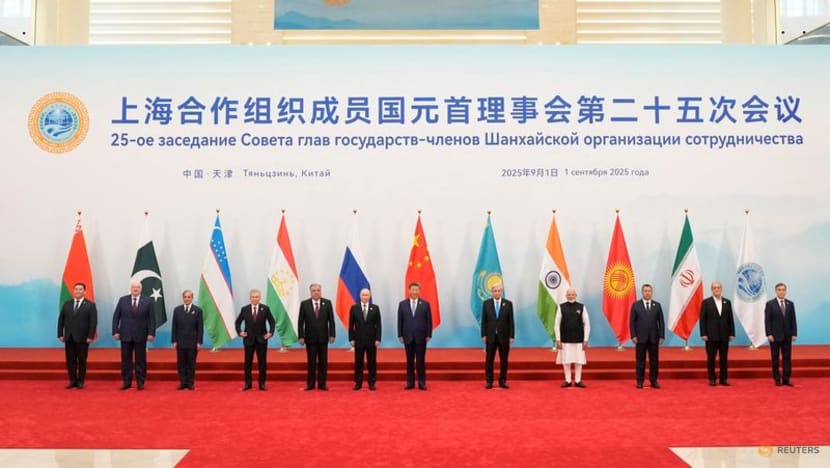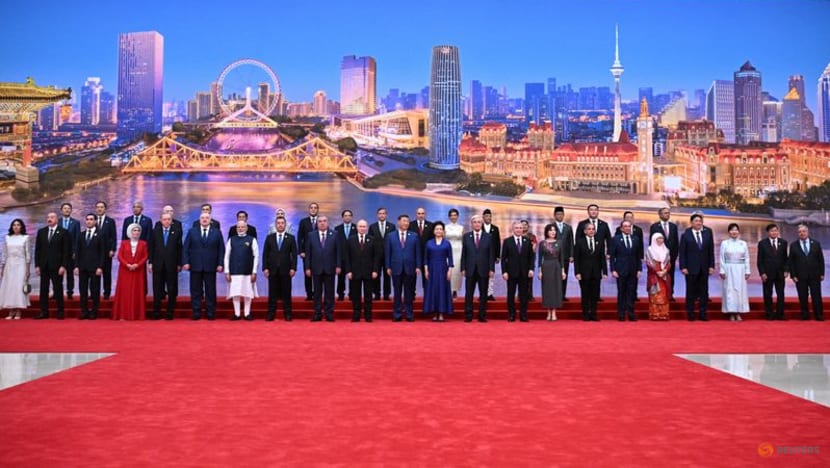Xi says global governance at crossroads, hails new initiative to build ‘fairer, more reasonable’ system
Chinese President Xi Jinping’s new Global Governance Initiative is the fourth major framework he has introduced since 2021, following the Global Development Initiative, the Global Security Initiative and the Global Civilization Initiative.


This audio is generated by an AI tool.
TIANJIN: Chinese President Xi Jinping has unveiled a sweeping vision for global governance reform, casting the world as once again standing at a crossroads - just as it did 80 years ago, when the United Nations was founded in the wake of two devastating world wars.
Speaking at the Shanghai Cooperation Organization (SCO) summit on Monday (Sep 1), Xi warned that Cold War thinking, hegemonism and protectionism still loom large, adding that the world has entered a new period of “turbulence and transformation” amid new threats and challenges.
While Xi did not cite specific flashpoints, his remarks come as wars rage on in Ukraine and the Middle East, and as tensions mount between China and what it views as an increasingly unilateralist United States.
“History tells us that the more difficult the times, the more we must hold fast to the original aspiration of peaceful coexistence, strengthen our confidence in cooperation and mutual benefit, and advance in line with the logic of historical progress and the tide of the times,” Xi told SCO members, observer states and dialogue partners.
“For this reason, I am putting forward a Global Governance Initiative, to work with all countries in building a fairer and more reasonable system of global governance, and to jointly advance the building of a community with a shared future for mankind.”
GDI, GSI, GCI, and now GGI?
The Global Governance Initiative is the fourth major international framework Xi has introduced since 2021, following the Global Development Initiative, Global Security Initiative and Global Civilization Initiative.
The Chinese supremo said the aim of his latest proposal is for all countries to work together to make the international system “fairer and reasonable”.
He set out five priorities under the new initiative: upholding sovereign equality, respecting international law, practising multilateralism, putting people first, and focusing on action-oriented results.
“All countries, regardless of size, strength or wealth, should equally participate in, decide on and benefit from global governance,” Xi said, adding that international law must be applied “without double standards” and that “the house rules of a few countries” should not be imposed on others.
Xi said the SCO had already put forward many new ideas on global governance and should “play a leading role and set an example” in implementing the initiative.

Founded in 2001, the SCO groups together China, Russia, India, Pakistan, Iran and Central Asian states, with Belarus as its newest member, alongside two observer states and more than a dozen dialogue partners.
The bloc’s agenda has expanded from regional security to economic and cultural cooperation.
In his speech, Xi also urged members to uphold non-alignment and non-confrontation, and to use newly established SCO centres on security threats and narcotics to help maintain stability.
On economic issues, Xi called on members to “tear down, not build, walls” and to deepen Belt and Road cooperation. He said globalisation should move in a “more inclusive and beneficial” direction.
He also announced new cooperation platforms with SCO members in energy, green industries and the digital economy, and new centres for science and technology, higher education and vocational training.
Over the next five years, China will also work with partners to install additional solar and wind power capacity, said the Chinese leader.
“China is ready to share the opportunities of its super-sized market, and will continue to implement a high-quality economic and trade cooperation action plan with SCO partners,” Xi said.

Xi said China would continue cultural and health exchanges under the SCO, including forums on political parties, sustainable development and traditional medicine.
He also pledged support for 500 congenital heart disease treatments, 5,000 cataract surgeries and 10,000 cancer screenings in SCO countries over the next five years.
Member states should continue to promote exchanges among civilisations and “write new chapters of harmony and coexistence”, Xi said.
In an earlier speech on Monday morning to SCO heads of state, Xi called on them to better align their development strategies, so that projects can be planned and built - and the benefits reaped jointly.
He also urged the China-led regional bloc to embrace openness and inclusivity, while renewing a call for multilateralism.
At the SCO summit, leaders signed a joint declaration pledging deeper security, economic and cultural cooperation, while also endorsing the bloc’s development strategy for the next 10 years.
The member states jointly unveiled four permanent centres focused on countering security threats, organised crime, cyber risks and narcotics.
At the same time, the declaration reaffirmed support for the United Nations’ central role in global affairs, while rejecting bloc-based confrontation and unilateral economic sanctions.
The document also noted that Laos has been accepted as an SCO dialogue partner, and that Kyrgyzstan will take over the SCO’s rotating chairmanship after China.

















